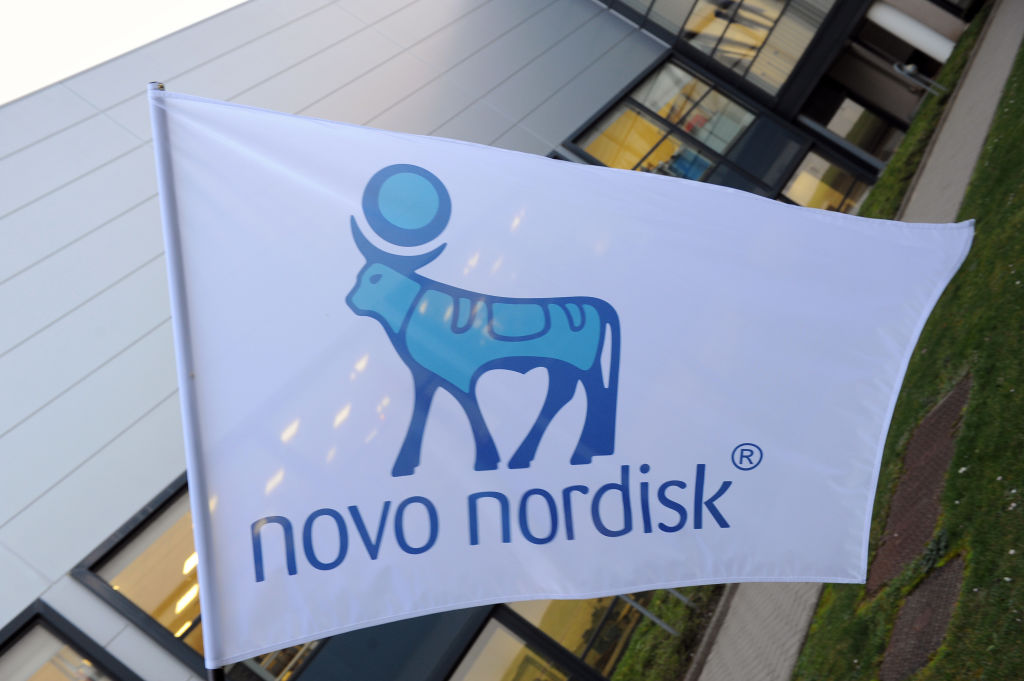

Novo Nordisk’s effort to diversify beyond diabetes has made it an active dealmaker, and its latest move brings a Phase 1- ready program with potential applications in a range of cardiometabolic disorders.
The drug candidate comes from startup Ventus Therapeutics. Under deal terms announced Thursday, Novo Nordisk is paying $70 million up front for the small molecule, which addresses a protein called NLRP3. Denmark-based Novo Nordisk gets global rights to develop and commercialize the drug in multiple diseases, including the fatty liver disease non-alcoholic steatohepatitis (NASH) and chronic kidney disease, among others. Depending on the progress of that research, Ventus could receive up to $633 million in milestone payments.
“NLRP3 is a biologically relevant target with significant potential across a number of liver, kidney, and cardiometabolic diseases,” Karin Conde-Knape, senior vice president of Global drug discovery at Novo Nordisk, said in a statement. “Ventus has developed a highly differentiated NLRP3 inhibitor program with best-in-class properties and compelling pre-clinical results.”
Ventus, which splits its operations between Waltham, Massachusetts and Montreal, discovers its drugs by using computational analysis to understand the structure of proteins and find ways to hit targets thought to be undruggable. The biotech’s NLRP3-blocking drugs are designed to stop the formation of NLRP3 inflammasomes, protein complexes that regulate the immune system and are involved in the intracellular signaling that triggers inflammatory responses. Inflammation caused by aberrant activation of this protein complex is associated with multiple conditions.
Though Novo Nordisk’s portfolio is heavily weighted toward diabetes, that’s changing. Earlier this month, Novo Nordisk reached a $1.1 billion deal to buy Forma Therapeutics, a company whose lead drug candidate, etavopivat, is in Phase 2/3 testing in sickle cell disease. That deal followed last year’s $3.3 billion acquisition of Dicerna Therapeutics, a developer of therapies based on an approach called RNA interference. The two companies were already partners in the development of RNAi drugs for NASH, type 2 diabetes, and obesity.
When Ventus closed its $100 million Series B financing last year, President and CEO Marcelo Bigal told MedCity News that his company was exploring partnerships with large pharmaceutical companies. At the time, he said he was not looking to partner his company’s internal programs. But the deal with Novo Nordisk puts its lead NLRP3 program in the hands of a global company with the resources to develop it for multiple disorders. It also puts Novo Nordisk in competition with others that are developing NLRP3-blocking drugs. Roche entered the space through its 2018 acquisition of Jecure Therapeutics. In 2019, Novartis paid $310 million up front to acquire IFM Tre, a subsidiary of IFM Therapeutics that was developing an NLRP3 inhibitor for NASH. Meanwhile, Ventyx Biosciences is preparing to begin clinical testing of an NLRP3 inhibitor for neurodegenerative disorders.
Ventus raised a $140 million Series C round of financing earlier this year as it prepared to advance its lead programs, including the now partnered NLRP3 inhibitor, into the clinic. The company has other NLRP3 programs. The deal with Novo Nordisk allows Ventus to keep rights for its NLRP3 inhibitors in development for certain other inflammatory and respiratory diseases. The biotech also retains rights to its brain-penetration NLRP3 program, which is in development for addressing neuroinflammation and neurodegeneration.
Photo: Jean-Francois Monier/AFP, via Getty Images


















